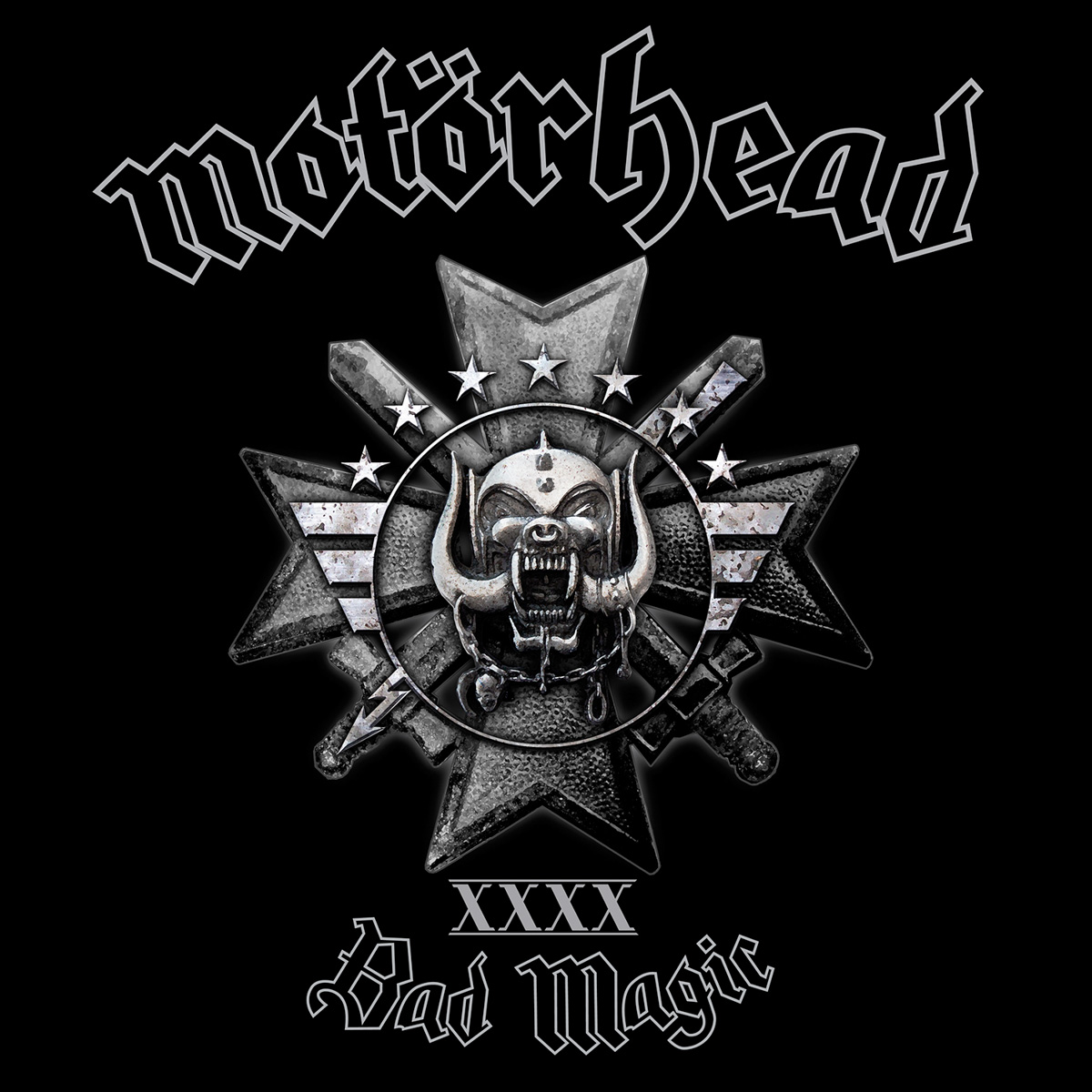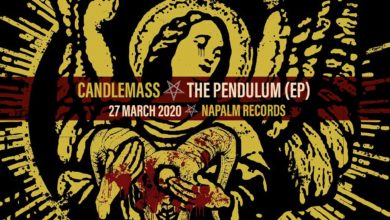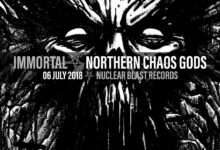MOTÖRHEAD – Bad Magic
Never too punk for metalheads or too metal for punks, Motorhead’s genuine craving for excess has astoundingly pushed their survival rate through an impressive four decades. They have retained their stance as a power trio, each member a substantial contributor. On August 28, the band released Bad Magic, their 22nd album to date. After this long an existence, and despite myriad evolving tastes that have noticeably hindered the space for rock music, this album smashes the odds. [columns] [column size=”1/3″]
Album Title: Bad Magic
Release Date: 28 August, 2015
Playing Time: 00:42:48
Label: UDR Music
Right when I heard the opener, “Victory or Die,” I immediately recalled what I love about the band, and that is their ability to trust their gut, without being discouraged by criticism. True to their roots, the song emits an incredibly pronounced garage aesthetic. The moment the band fire up their instruments, it’s clear that they aimed to give the album a faultless live atmosphere. Guitarist Phil Campbell’s punk-tinged riffing charges unapologetically throughout, and his razor sharp lead transitions are equally forceful. Lemmy’s vocals may have endured countless bouts of varying abuse, but his lyrics always carry the same sincerity. The contrasts of the two choruses—one dealing with a fantastical sighting, and the other a dose of tough love for a wartime reality—ultimately share an important goal akin to Motorhead’s vision. That is, to maintain a mental “zone” on the path toward personal success, amidst the palpitation-inducing bizarreness of the world.
On the second track, “Thunder & Lighting,” the chugging and thickness of the bass line really shine through. While exhibiting an extremely similar feel to the classic “Ace of Spades” in tonality as well as key, its placement in the instrumentation is especially fitting to potentially draw in new fans. Lemmy fondly acknowledges the positive jolt obtained through live performance, as well as the bleak and unpredictable happenings of the road. While such a subject matter might present itself as cliché and rather dated, the manner in which Lemmy portrays it is both honest and concise (“All of your dreams can really come true/All of your nightmares will be waiting there too”). When pursued, that lifestyle surely causes a blur between danger and excitement, leaving only the beholder to determine its own destiny.
Much like the previous song, “Thunder & Lightning” reinforces the value, as well as the healthy challenges that result from taking action. The third track, “Firestorm Hotel,” contains nuances of a previous Motorhead era, featuring stronger hook structures and chord progressions. Its theme centers on stealthily steering clear of hazardous insanity, in an environment full of smog-filled disarray. The harmonies during the chorus phases create an interesting layer of additional grit that accentuates Lemmy’s natural rasp. At the 1:45 mark, a small bass solo keeps the energy intact, eventually building to a popping guitar solo, prompted by the unremorseful instruction, “Burn!” It could suggest the hotel is being destroyed, providing listeners insight into the band’s creative process, and keeping a solid focus on being melodically stimulating. From the ending phase, it is implied that even though the evil is momentarily stopped, it will always find a way to thrive again.
Beginning with the fourth track, “Shoot out All of Your Lights,” the album shifts to a more metal-oriented sound. The double-bass drum foundation is sufficiently evident in signaling this change, and what follows is a thrash-laden speed and intensity. At the same time, there is a newfound attack-based assertiveness that defines both the instrumentation and lyrical theme. The song plays out more or less like an interrogation act, catching sketchy suspects and demanding answers. The call-and-response shouting of ‘fight’ and ‘die’ in the chorus also really worked to the song’s advantage, especially when accentuated by the punchy riffs. This ultimate mutation in attitude is elevated by “The Devil”, which sports a Black Sabbath-inspired vibe, ideal for evoking the dominance of one’s faulty behavior. It is then expanded upon in “Evil Eye,” stressing the extent to which the “rebel in solitude” way of life could twist one’s identity. As this song proceeds, Lemmy’s voice fluctuates between normal —an angel providing guidance, and a menacing growl—a devil counteracting with a crippling curse. Both are perfect representations of a conscience at war, with one side made to sternly warn against danger, while the other exudes a blunt and snide harshness.
Another stylistic shift occurs in the ninth track, the retrospective ballad “Till the End.” Here, Lemmy’s stationary vocals sound wholly refreshing, and are a welcome change of pace from the dominating rockers. In this song, he deviates from the chaos, instead reflecting on how putting himself first has allowed him to move forward. Although this way of life can prove difficult for anyone to live by, hearing those anecdotes from the man himself feels like receiving advice from a mentor. Just by the matter-of-fact manner in his voice, I can truly get a sense of how his choosing to live the high-life has essentially grounded him. This song is actually the first I’ve heard of Motorhead’s to feature clean guitars, and even the bass’ distorted quality works solidly with its grounded mood. If there’s anything else the band can effectively stamp their identity onto, it is, without a doubt, cover songs. Having long been a standard since their initial years, the band succeeds yet again with their rendition of Rolling Stones’ “Sympathy for the Devil”. The samba-meets-metal groove translates naturally with the Motorhead sound, and the lead guitar stands prominent during the bash-it-out solo breaks. As the closer, it’s an appropriate thematic tie-in, and provides a bit of nostalgia, which is always a plus.
Overall, Bad Magic is a mature, thought-provoking concept with a ruthless and youthful soul. Its extensive emphasis on rawness, as well as its progressive detailing of harsh road realities is executed very intelligently. There’s a distinct tone of clashing spirituality that, whether intentional or not, gives the album a tasteful balance of theme and style. Along the way, there are allusions to previous eras of the band that instill an element of fun (and, to extent, surprise) to the album’s flow. Regardless what longtime fans may say otherwise, it’s understood that Motorhead always deliver gritty, unabashed rock n’ roll whenever necessary, and prove that they are still capable of putting up a worthy fight.
[9/10] [separator style=”space” /] [blog type=”alt” tags=”motorhead-photos” heading=”Motorhead – The Warfield – San Francisco, CA – August 24, 2015″ heading_type=”block” /] [separator style=”space” /]







